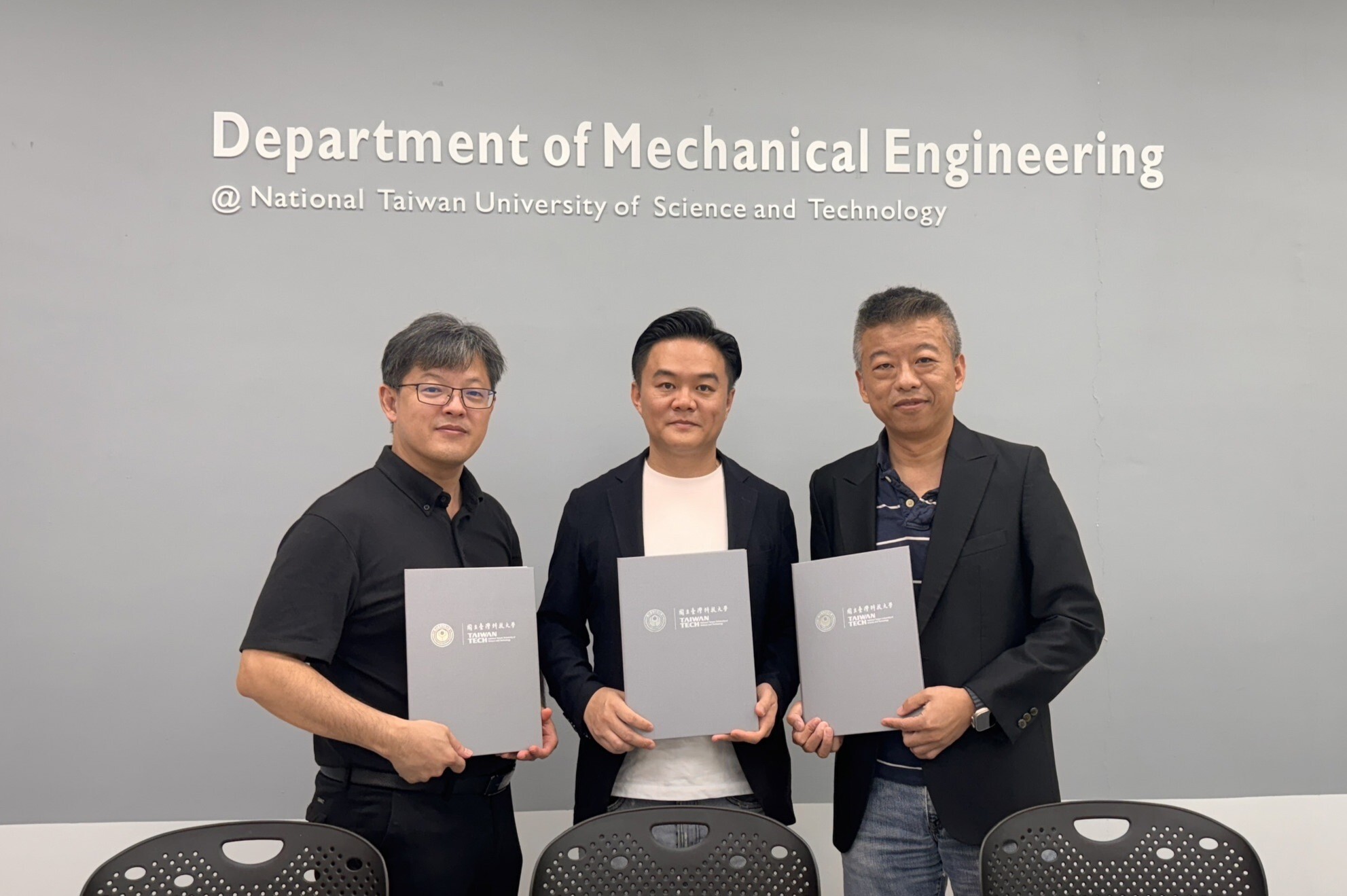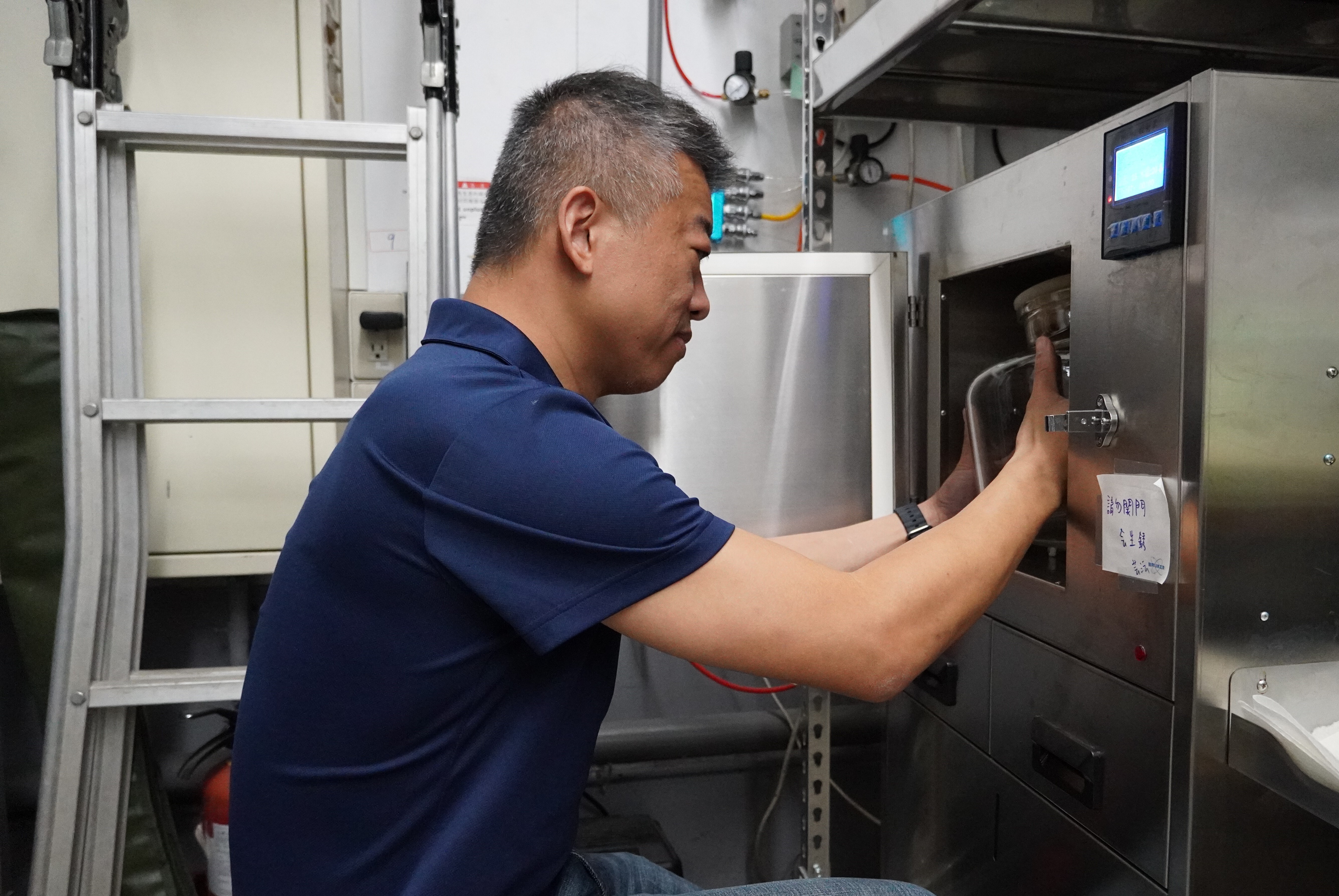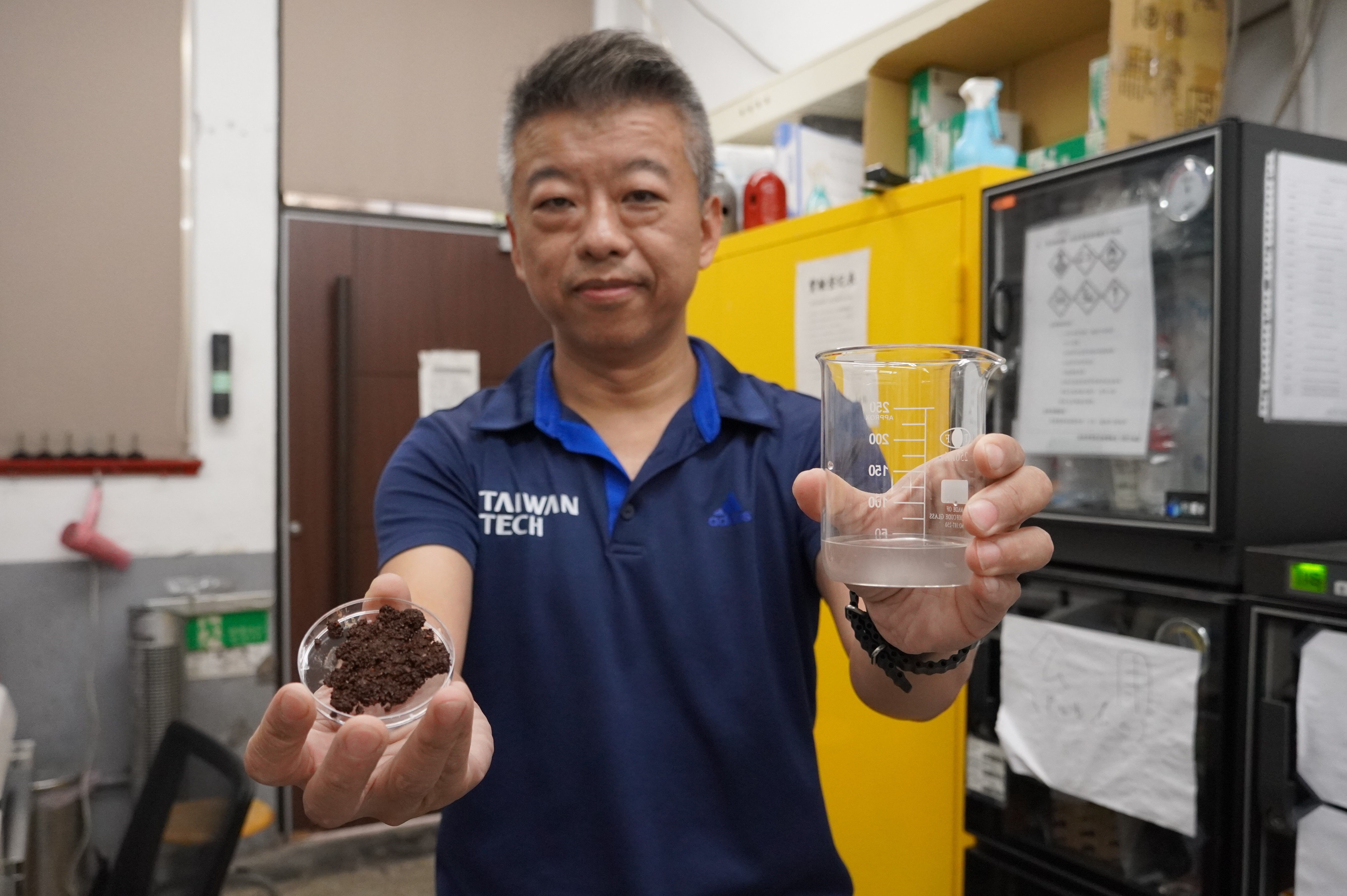Turning waste into wealth: Taiwan Tech transforms coffee grounds into charcoal and beauty products!
As the Mid-Autumn Festival approaches, barbecuing has become a key activity for celebrating family reunions. However, the carbon emissions are gaining increasing attention from the public. Recently, Professor Yu-Lin Kuo from the Department of Mechanical Engineering of Taiwan Tech signed a Memorandum of Understanding (MOU) with the Mitan Huoh Restaurant Group and Professor Fu-Chen Gong from Kainan University to promote innovative changes in the restaurant industry’s use of charcoal. By leveraging technological innovation and circular economy principles, they aim to transform coffee grounds into charcoal and skincare ingredients, paving the way for a low-carbon future and helping the restaurant industry achieve its goal of net-zero emissions by 2050.

Professor Yu-Lin Kuo (right) from Taiwan Tech signed an MOU with CEO Jun-Hsien Chen (center) of Mitan Huoh Restaurant Group and Professor Fu-Chen Gong (left) from Kainan University to jointly advance the restaurant industry toward a future of circular economy and low carbon emissions.
In this industry-academic collaboration, the team of Distinguished Professor Yu-Lin Kuo focuses on the sustainable reuse of waste resources by performing low-carbon extraction on large quantities of recycled coffee grounds. The extracted hydrosol is rich in chlorogenic acid and caffeine, which can help moisturize the skin and inhibit melanin production, offering significant economic value. This research expands the applications of coffee grounds, as Professor Kuo notes that their rich organic content can yield high-value cosmetic ingredients, enhancing the utility of coffee grounds and promoting diverse resource usage.

Professor Yu-Lin Kuo from Taiwan Tech uses a microwave extraction machine to transform a large amount of coffee grounds raw materials into high-value cosmetic ingredients.
Moreover, the coffee grounds left after the extraction process are not discarded. Instead, they are handed over to a partner company, which uses innovative technology to transform them into low-carbon charcoal for the Mitan Huoh Restaurant Group. The ash produced from burning this coffee ground charcoal can also be converted into organic fertilizer or other renewable materials, fully realizing the multi-cycle reuse of resources and maximizing the value of coffee grounds.
In addition, the coffee grounds after the extraction process are not discarded but are further handed over to cooperative manufacturers, who use innovative technology to make low-carbon process charcoal and provide it to the Mi Tanhuo Catering Group. The charcoal ashes of burned coffee grounds can also be converted into biofertilizer or other renewable raw materials, completely realizing multiple recycling of resources and maximizing the value of coffee grounds.

Professor Yu-Lin Kuo from the Department of Mechanical Engineering at Taiwan Tech used coffee grounds (left) to extract hydrosol rich in chlorogenic acid and caffeine, (right).
Through industry-academic collaboration, the process of reusing coffee grounds has been optimized, integrating the principles of a circular economy into traditional dining. CEO Jun-Hsien Chen of Mitan Huoh Restaurant Group stated that future barbecue chain stores will use low-carbon charcoal made from coffee grounds instead of traditional charcoal. He hopes that customers will be able to enjoy barbecuing during the Mid-Autumn Festival without worrying about carbon emissions.
Professor Fu-Chen Gong mentioned that the research team will assist the industry in optimizing the production process of coffee ground charcoal to reduce carbon emissions in the process, and will measure the ash produced from the burned charcoal to complete the circular system. This effort will enhance the sustainability of the restaurant industry and provide valuable insights for other sectors.
Taiwan Tech has long been committed to collaborating with the industry, focusing on technological innovation to drive transformation and upgrading. As global carbon issues continue to grow, Taiwan Tech will keep its focus on researching and developing low-carbon technologies. In the future, Taiwan Tech will continue to explore further opportunities for industry collaboration to realize the vision of a circular economy and carbon neutrality, and strive towards the goal of net-zero emissions by 2050.
